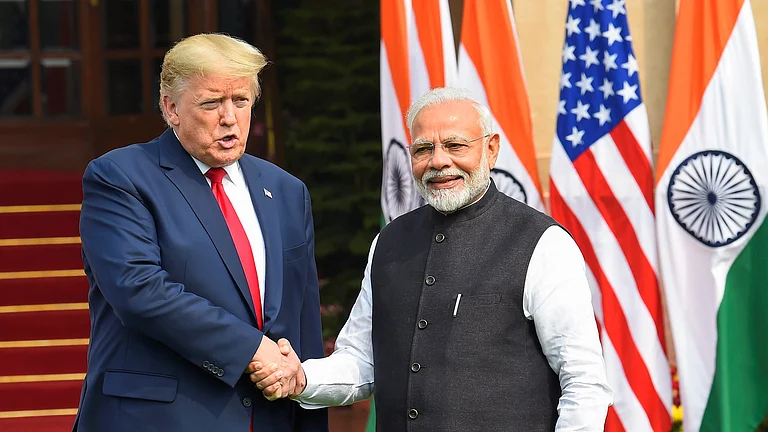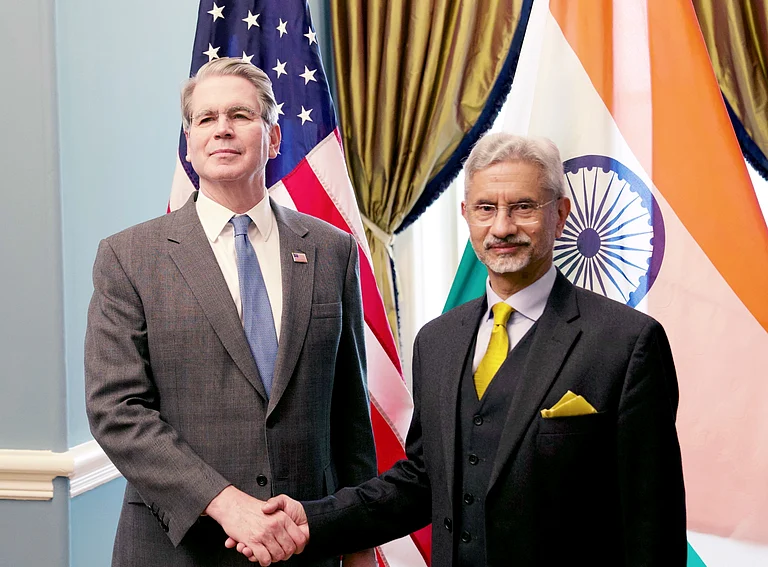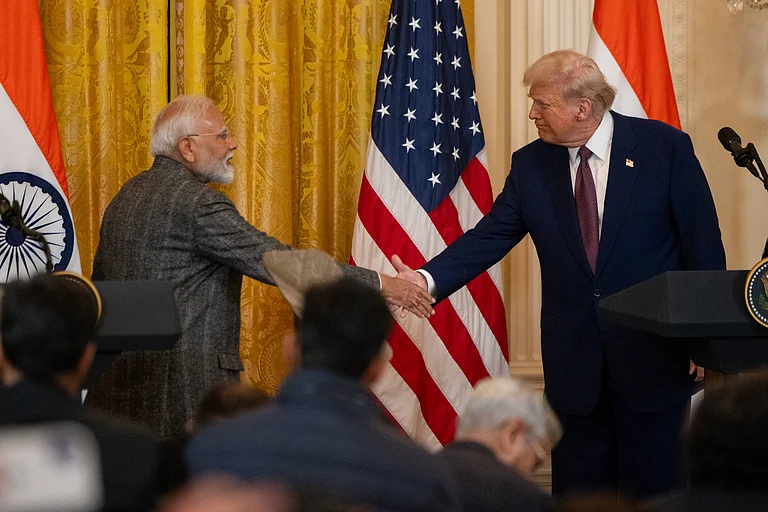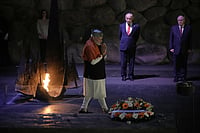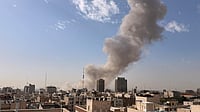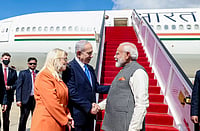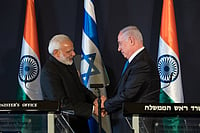
US President Donald Trump announced that India won’t be taking Russian oil.
An Indian team is already in Washington for talks; however, formal engagement has not yet begun.
MEA spokesman Randhir Jaiswal said that New Delhi’s twin goals on energy are to ensure “stable prices and secured supplies.
As India and the US get set to restart trade negotiations, New Delhi is making sure that Donald Trump, the mercurial US president, remains in good humour.
That perhaps explains the Ministry of External Affairs (MEA) 's muted reaction to Trump’s remarks, as Prime Minister Narendra Modi has assured him that India would stop lifting Russian oil.
An Indian team is already in Washington for talks; however, formal engagement has not yet begun as the government shutdown in the US is causing some delay.
“India is a significant importer of oil and gas. It has been our consistent priority to safeguard the interests of the Indian consumer in a volatile energy scenario. Our import policies are guided entirely by this objective,” MEA spokesman Randhir Jaiswal said in a statement, after persistent queries from reporters on Trump’s claims.
The US President had said on Wednesday, “So I was not happy that India was buying oil, and he (Modi) assured me today that they will not be buying oil from Russia,” Trump said. “That’s a big step. Now we’re going to get China to do the same thing.”
In his response, Jaiswal did not address the main issue. Did the PM give this assurance to Trump? If so, when? Was there a phone call between the two leaders recently? Or was this message conveyed by Modi to Sergio Gor, US ambassador-designate to India, when he called on the PM during his short trip to Delhi?
Instead, the spokesman spoke at length on India’s energy policy. Jaiswal said that New Delhi’s twin goals on energy are to ensure “stable prices and secured supplies, which has led to diversifying energy sourcing and scouting for cheap oil whenever energy is at a discount.
“Where the US is concerned, we have for many years sought to expand our energy procurement. This has steadily progressed in the last decade. The current Administration has shown interest in deepening energy cooperation with India. Discussions are ongoing,’’ the spokesman added.
India’s policy towards the Trump administration is not to confront the president and to remove the current 50 per cent tariff hike.
Prime Minister Modi’s image at home is that of a strong man who can stand his ground against other world leaders, including Trump. Most Indians lauded Modi for his refusal to stop purchasing oil from Russia as an assertion of India’s strategic autonomy. Walking back from that position is tricky for the PM’s domestic constituency. But the economic stakes are also high, as vulnerable sections working in sectors like jewellery exports, handicrafts and shrimp farming are being affected by US tariffs. India desperately needs the lowering of US tariffs and does not want to rock the boat with Trump.
This explains MEA’s ambiguity and India’s refusal to rise to the bait and contradict Trump. Earlier on Monday, the US President claimed once again in Sharm el-Sheikh that he was responsible for stopping the India-Pakistan air war. Pakistan’s prime minister, Shehbaz Sharif, also chipped in by adding that if it were not for Trump, the situation between the two nuclear-armed neighbours would have spiralled out of control. New Delhi did not push back and shrugged off these claims.
India’s economic and trade relations with the US are much too important for New Delhi to contradict Trump, just when relations are improving and chances of a bilateral agreement are on the horizon.
New Delhi’s oil imports from Russia were under one per cent before the Ukraine war. But Western sanctions on Russia led to a steep discount in prices. India began lifting large quantities of oil, nearly 40 per cent since then. But of late, India has been gradually reducing the amount of oil it buys from Russia, mainly because there is not much of a gap at the moment between Russian oil and the prevailing market price. However, some quantity is still lifted from Russia.








